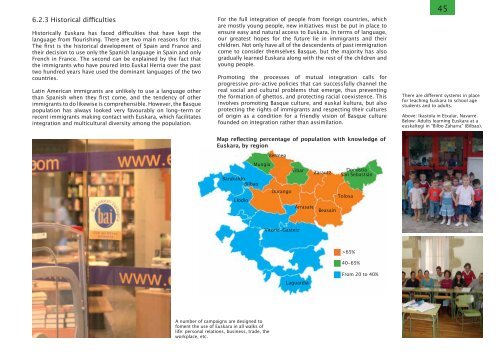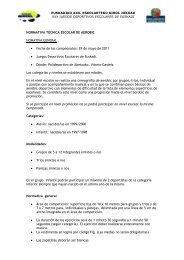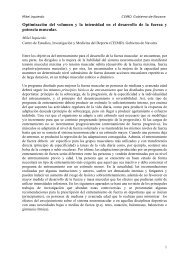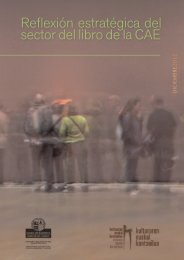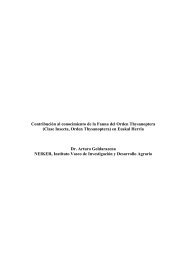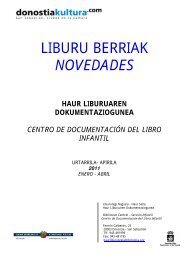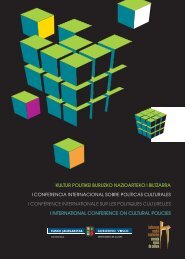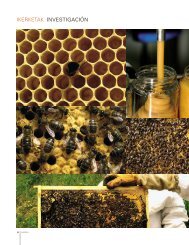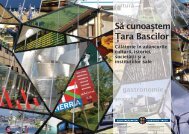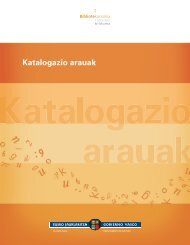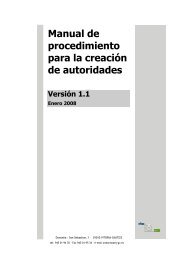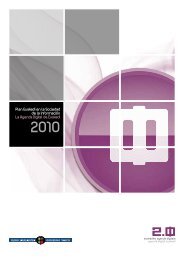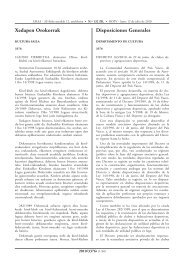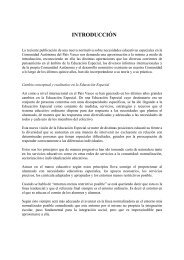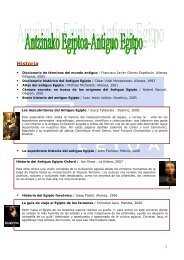The Basque Country (pdf, 4,3Mb) - Kultura Saila - Euskadi.net
The Basque Country (pdf, 4,3Mb) - Kultura Saila - Euskadi.net
The Basque Country (pdf, 4,3Mb) - Kultura Saila - Euskadi.net
You also want an ePaper? Increase the reach of your titles
YUMPU automatically turns print PDFs into web optimized ePapers that Google loves.
6.2.3 Historical difficulties<br />
Historically Euskara has faced difficulties that have kept the<br />
language from flourishing. <strong>The</strong>re are two main reasons for this.<br />
<strong>The</strong> first is the historical development of Spain and France and<br />
their decision to use only the Spanish language in Spain and only<br />
French in France. <strong>The</strong> second can be explained by the fact that<br />
the immigrants who have poured into Euskal Herria over the past<br />
two hundred years have used the dominant languages of the two<br />
countries.<br />
Latin American immigrants are unlikely to use a language other<br />
than Spanish when they first come, and the tendency of other<br />
immigrants to do likewise is comprehensible. However, the <strong>Basque</strong><br />
population has always looked very favourably on long-term or<br />
recent immigrants making contact with Euskara, which facilitates<br />
integration and multicultural diversity among the population.<br />
For the full integration of people from foreign countries, which<br />
are mostly young people, new initiatives must be put in place to<br />
ensure easy and natural access to Euskara. In terms of language,<br />
our greatest hopes for the future lie in immigrants and their<br />
children. Not only have all of the descendents of past immigration<br />
come to consider themselves <strong>Basque</strong>, but the majority has also<br />
gradually learned Euskara along with the rest of the children and<br />
young people.<br />
Promoting the processes of mutual integration calls for<br />
progressive pro-active policies that can successfully channel the<br />
real social and cultural problems that emerge, thus preventing<br />
the formation of ghettos, and protecting racial coexistence. This<br />
involves promoting <strong>Basque</strong> culture, and euskal kultura, but also<br />
protecting the rights of immigrants and respecting their cultures<br />
of origin as a condition for a friendly vision of <strong>Basque</strong> culture<br />
founded on integration rather than assimilation.<br />
Map reflecting percentage of population with knowledge of<br />
Euskara, by region<br />
Barakaldo<br />
Bilbao<br />
Llodio<br />
Mungia<br />
Bermeo<br />
Durango<br />
Eibar<br />
Arrasate<br />
Zarautz<br />
Beasain<br />
Tolosa<br />
Donostia<br />
San Sebastián<br />
45<br />
<strong>The</strong>re are different systems in place<br />
for teaching Euskara to school age<br />
students and to adults.<br />
Above: Ikastola in Etxalar, Navarre.<br />
Below: Adults learning Euskara at a<br />
euskaltegi in “Bilbo Zaharra” (Bilbao).<br />
Vitoria-Gasteiz<br />
>65%<br />
40-65%<br />
Laguardia<br />
From 20 to 40%<br />
A number of campaigns are designed to<br />
foment the use of Euskara in all walks of<br />
life: personal relations, business, trade, the<br />
workplace, etc.


